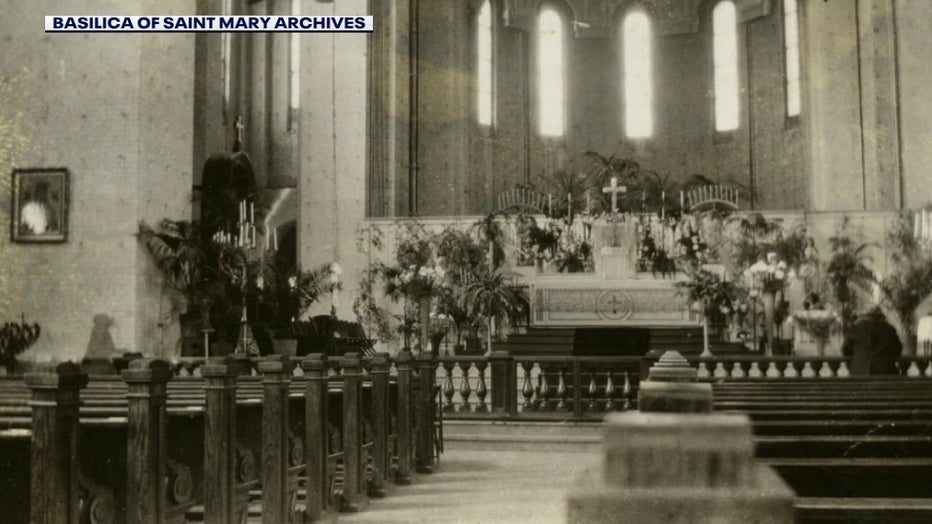Easter is the oldest known Christian holiday but one that was controversial at a time
Easter is the oldest known Christian holiday but one that was controversial at one time
From the church alters decorated with lilies, to believers dressing up in Sunday best, long-standing traditions predate any photographs of Christians celebrating the resurrection of Jesus. "Easter is actually the oldest Christian holiday," says Alex Weston, program associate at the James J. Jill House. "It’s the first one we have any records of Christians celebrating specifically as a holiday.
(FOX 9) - From the church alters decorated with lilies, to believers dressing up in Sunday best, long-standing traditions predate any photographs of Christians celebrating the resurrection of Jesus.
"Easter is actually the oldest Christian holiday," says Alex Weston, program associate at the James J. Jill House. "It’s the first one we have any records of Christians celebrating specifically as a holiday.
As Weston reminds us, by the time the United States was in the process of being founded, Easter had become a controversial holiday.
"If you think of Europe in the 1500s, 1600s, 1700s – the same centuries the first colonies in America are being founded -- those are generations of warfare," says Weston. "Protestants vs Catholics, Protestants versus other types of Protestants, and a lot of these different denominations and sects celebrate Easter in different ways. Place different bits of importance on what the holiday should mean."
As we see through some of the archives from the Minnesota Digital Library this resulted in Easter being celebrated in private, not in public.
"Love his outfit, showing the time period, sleeve protector, hat he’s clearly a greenhouse worker," says Molly Huber with the Minnesota Digital Library.
"Turn of the 19th century – around 1800 – July 4th and Washington’s birthday are really the only big public holidays," says Weston.
Halfway through the 19th century, Weston points out there's a craving to unite America with holiday festivities, while simultaneously not being overly religious.

(FOX 9)
"Who doesn’t love a bunny," jokes Weston. "The Easter bunny in the 1800s goes from being specifically German tradition to something across Britain and America people are enjoying. Same with egg hunts, egg decorations."
Easter bunnies and activities involving eggs continue today.
"There is religious symbolism there so an empty egg and represents Christ’s empty tomb, but it’s not going to be divisive in any way. You can enjoy it on its own terms regardless of what you believe," says Weston.
The White House egg roll tradition which also continues to be popular today started in 1878 after public gatherings were banned in other open grassy spaces in Washington D.C. due to protests following the Civil War.
"Seeing a political opportunity in 1878, President Rutherford B. Hayes the White House lawn is open," says Weston. "If you want to roll eggs in D.C., come to the White House."
Yet no single event draws more attention than wealthy people who would stroll down the avenues after mass for what became known as the Easter Parade. The wife of James J. Hill seemingly never missed a trip to New York for the spring spectacle. She was among the dressmakers taking paper and mental notes on the newest fashion trends. Basically, the birth of fast fashion and clothing consumerism.
"A lot of these women they are being paid by department stores. They are the original influencers. They are being paid because they know if Ms. Aster is going to be seen in a new style of hat, everyone is going to want that hat."
The tradition died down with the depression and by the 1940s, Minnesota’s own Judy Garland starred alongside Fred Astaire in the movie "Easter Parade." Things like Spring Fashion Week in New York and elaborate window displays for stores including Dayton’s followed. So much of it, another chapter of the historic impacts of Easter traditions.

